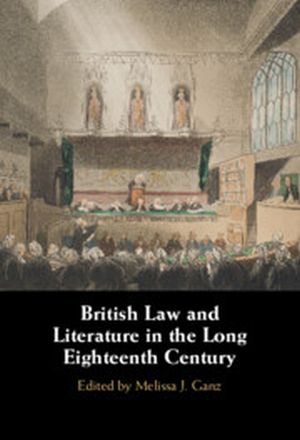
British law underwent significant changes in the eighteenth century as jurists and legislators adapted doctrines to fit the needs of an increasingly commercial, industrial, and imperial society. This volume reveals how legal developments of the period shaped and were shaped by imaginative writing. Reading canonical and lesser-known texts from the Restoration to the Romantic era, the chapters explore literary engagements with libel law, plague law, marriage law, naturalization law, the poor laws, the law of slavery and abolition, and the practice of common-law decision-making.
The volume also considers the language and form of legal treatises and judicial decisions, as well as recent appropriations of the period's literature and legal norms by the Christian right. Through these varied case studies, the volume deepens our knowledge of law and literature's mutual entanglements in the long eighteenth century while shedding light on legal and ethical questions that remain of concern to this day.